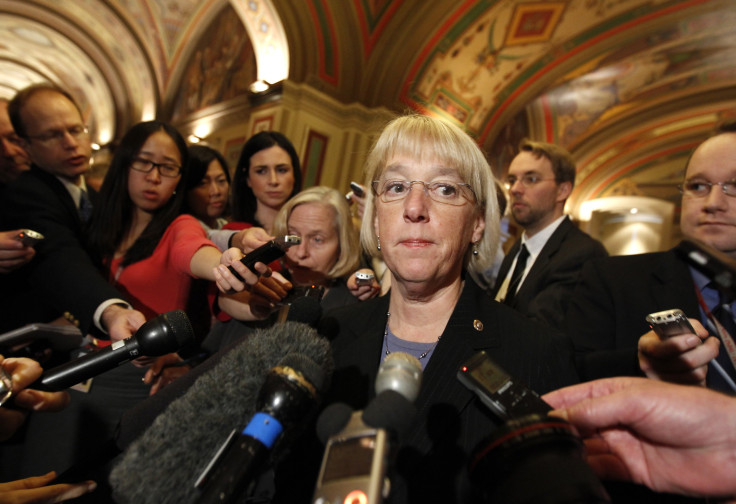How Do Democrats Plan To Balance Budget? Tax Increase, End Sequester

Democrats will unveil their first formal federal budget in four years on Wednesday. The plan will seek new revenues through a tax increase, coupled with spending cuts to prevent the current regime of budget sequester that began on March 1 from extending to the next nine years.
Senate Budget Committee Chairwoman Patty Murray, D-Wash., revealed the budget blueprint on Tuesday to her colleagues. In the proposal, Democrats will ask for approximately $1 trillion in new tax revenues while cutting spending to reduce the deficit by $1.85 trillion over the next decade.
Murray’s budget proposes $975 billion in spending cuts. It will also raise the same amount by overhauling the tax code and eliminating tax deductions that benefit high-income earners. The plan also calls for $100 billion to be spent on infrastructure development and job training programs.
House Budget Committee Chairman Paul Ryan, R-Wis., released this budget plan on Tuesday, which he said would balance the budget in 10 years without raising taxes. It would reduce government spending by about $5 trillion. But under Ryan’s budget, the current sequester, which will reduce spending by $1.2 trillion over 10 years, remains. Nearly half of the savings under Ryan’s plan will come from health programs like Medicaid and Obamacare. Republicans have tried to repeal the president's health care reform several times and failed. Ryan will take another crack at repealing the Affordable Care Act in his new budget -- which has no chance of passing, just like the Democratic proposal, since each party controls one chamber of Congress.
Though both parties now have what they believe is a balanced budget plan, President Barack Obama isn’t too optimistic that a grand bargain can be reached on the budget.
Obama told ABC News Wednesday morning that it is much easier to have a conversation when there is something specific on the table. At the moment he says he remains focused on creating an atmosphere where Republicans and Democrats can get work done.
“Ultimately, it may be that the differences are just too wide,” Obama said. “If their position is, ‘We can’t do any revenue’ or ‘We can only do revenue if we gut Medicare or gut Social Security or gut Medicaid,’ if that’s the position, then we’re probably not going to be able to get a deal.”
© Copyright IBTimes 2024. All rights reserved.












